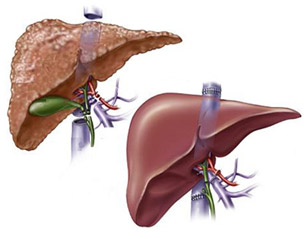An insight into liver transplantation
Liver
transplantation is a life-saving surgical procedure performed when the liver
function of a patient is severely compromised and immediate intervention is
necessary. Liver specialist
hospital in Delhi typically recommends this procedure for patients experiencing
acute liver failure, acute-on-chronic liver failure, or end-stage liver
disease. Time is of the essence in such emergency cases, and very often a
timely liver transplant can mean the difference between life and death.
Going
for Liver Transplant Surgery in India
is important if the liver of the patient has been damaged to the point that it
cannot perform its normal functions. Such a condition is known as liver failure
or end-stage liver disease. Liver is an important organ of the body. It can become
gradually damaged due to high alcohol consumption, infection or illness. Such damage
causes the liver to become scarred, which is a condition known as cirrhosis.
Liver failure may also occur quite rapidly as a result of inflammation and
death of liver tissue (necrosis). Some of the major causes of liver damage and
cirrhosis are alcohol-related liver disease (ARLD) and hepatitis. In case of
ARLD, the liver becomes scarred because of years of persistent alcohol misuse.
On the other hand, hepatitis B and hepatitis C are blood-borne viruses that can
sometimes cause extensive liver damage and require Emergency Liver Transplant.
Liver
transplant can be of two types. First is deceased organ donation that involves
transplanting a liver that has been removed from a person who died recently. On
the other hand, in case of living donor liver transplant, a section of liver is
removed from a living donor. As the liver can regenerate itself, both the
transplanted section and the remaining section of the donor's liver can re0grow
into a normal-sized liver.

Comments
Post a Comment